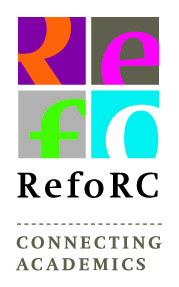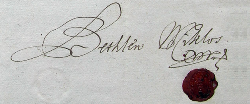The Publications on Literary History (PLH) (Irodalomtörténeti Közlemények) was published in 1891 as a journal of the Committee of Literary History of the Academy. There was a pause in its publication after World War II from 1948 to 1952 and it was restarted in 1953. When the Institute was established, it was entrusted with the redaction of the PLH. Six volumes were issued each year. The task of the periodical is to publish the new results of Hungarian literary history writing, to follow the history of Hungarian literature from the beginnings to the second half of the 20th century, but it does not reject presenting new methodological trends, research tendencies and analyzing certain questions of literary history either. It also gives scope for studies examining important questions of cultural history. The PLH aims at giving a picture of the many colours of the research on Hungarian literary history with the help of numerous columns (Studies, Smaller Publications, Literary Analysis, Textology, Workshop, Debate). It regularly publishes the newly explored and so far unknown works and documents (for example letters) of literary historical interest. In its column called Review, it issues reviews and critics on the recent publications of Hungarian literary history writing and it also presents publications in foreign languages that have a subject of Hungarian literary history. The column Chronicle reports on the activities of the Institute: scientific sessions organized by the Institute, presentations of foreign professionals given in the Institute, and our colleagues’ presentations given abroad. This column gives scope for the necrologues of literary historians passed away recently.
The editor-in-chief of the PLH is Gábor Kecskeméti, its managing editor is István Csörsz Rumen, while the editor of the column Review is Sándor Bene.
The journal titled Criticism (Kritika) was launched in September 1963 as a common periodical of the Institute, the Society of Hungarian Literary History (Magyar Irodalomtörténeti Társaság) and the Association of Hungarian Writers (Magyar Írók Szövetsége), and it was issued each month until December 1971, when it was terminated by the Party. Its managing editor was András Diószegi during this period. The aim of the editor and the close colleagues was to publish a periodical of literary theory and criticism that has a view on the problems of public life, social sciences and related arts, too. This concept was realized on a high level, in a way that was understandable to the public, with an excellent team of authors, and not endorsing the dogmatic-vulgar Marxist approach. Its nearly ten-year-long existence coincided with one of the most productive periods of the Institute and with the development of modern literary science. The periodical initiated several famous debates and it called the attention to discussions going on in other periodicals and forums, too. Its synthetic, analyzing and polemic writings always had an orientating and informative character and indicated values. Its open spirit, novelties and debates often provoked indignation among the management of the Party, and the conflicts finally led to the termination of the journal.
Literatura was launched in 1974 as a quarterly periodical, with István Sőtér as editor-in-chief and Miklós Béládi as managing editor. Its primary task was to examine the questions of literary modernism and 20th-century Hungarian literature together with orientation in literary theory, and it wished to continue the spirit of Criticism that was terminated in 1971. In 1985, when György Bodnár became the editor-in-chief and Béla Pomogáts the managing editor, the profile of the journal was modified: there was greater emphasis put on the supervision of the traditions and judgementof 20th-century Hungarian literary history. In 1990, Béla Pomogáts became the editor-in-chief and Ernő Kulcsár Szabó the managing editor. The profile of Literatura was significantly modified: it wished to be a literary theoretical journal, which was the first step on a road without any precedent or tradition in Hungary before. From 2000, András Veres was the managing editor, while he has been editor-in-chief from 2006 and Gábor Bezeczky has been the managing editor. Péter Hajdu, György Kálmán C. and Dávid Szolláth are involved in the edition of Literatura. Besides keeping its literary theoretical profile, the paper gives scope for studies representing literary sociology, cultural history and other related areas of science. Its column called “Workshop” is reserved for the most excellent young professionals and it tries to present the various workshops and schools operating in Hungary.
Helikon has been issued since 1955 in four volumes a year. Its name was Literary Observer (Irodalmi Figyelő) from 1955 to 1957, World Literature Observer (Világirodalmi Figyelő) from 1958 to 1963 and Helikon World Literature Observer (Helikon Világirodalmi Figyelő) from 1964 to 1991. From 1992 the subtitle of Helikon has been Review of Literary Studies, which expresses its true scope of interest. The journal reports on the international research results of literary studies. Its scope of interest covers literary theory, comparative literary studies, the theoretical, historical and methodological questions of modern world literature, and the border areas of cultural history and literature. It has thematic numbers since 1963: they are structured around a professional field or a problem taking into consideration the views of the most recent scientific trends as much as possible. The volumes of the year 2005 are: Critical Research on Culture, The Old in the New, Vico’s Circles (A kritikai kultúrakutatás, Régi az újban, Vico körei). The year 2006 included Critical Subjectivism, Frege’s Actuality, Relevance (Kritikai szubjektivizmus, Frege aktualitása, Relevancia).
In each number, Helikon publishes the complete list of the topics already presented. The summarizing studies and the review articles dealing with subproblems are written by local and foreign authors. The Hungarian version of a few essential works and studies of literary science can only be read in Helikon. The periodical regularly reports on the international events, congresses and conferences of literary science, documenting the differing viewpoints and methodological debates. In its book column, critics on 100–120 professional books are published each year with short reviewsand evaluations.
REC.ITI, the new review portal of the Institute was started in December 2007. Its aim is to regularly review the important professional booksof literary science and Hungarology and coordinate the professional reviews relating to these books. As a network publishing house, it has published numerous study volumes. Its editor-in-chief is Béla Hegedüs. More information can be found on its website.



